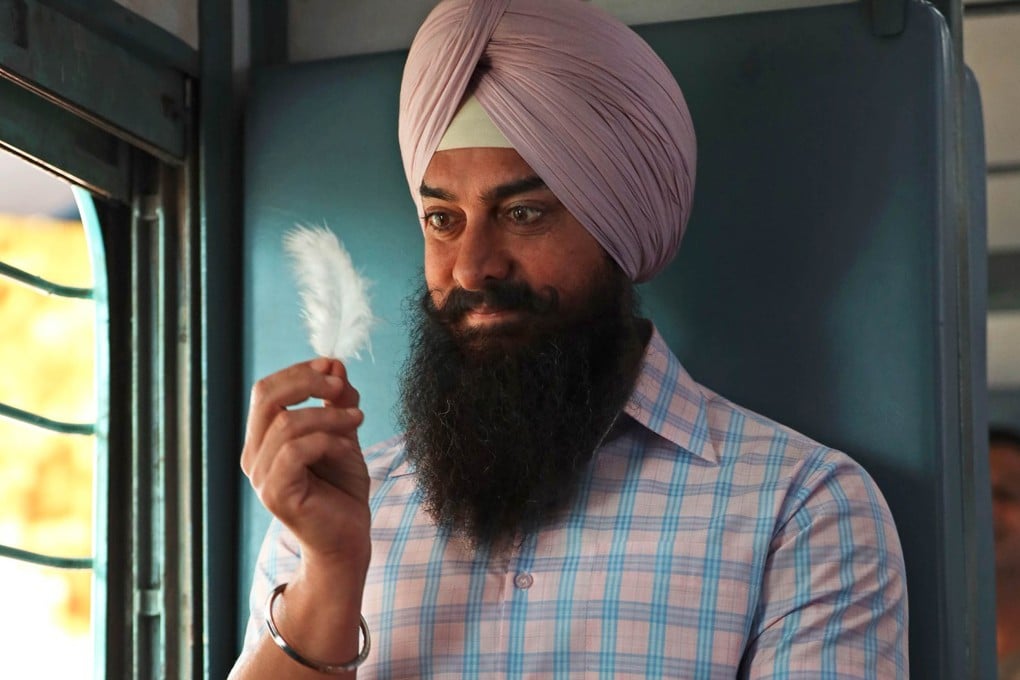Review | Laal Singh Chaddha movie review: Aamir Khan stars in Bollywood remake of Forrest Gump
- The Forrest Gump story is transplanted to India in Laal Singh Chaddha, as a slow-witted Sikh man, Laal, recounts his life and India’s recent past to strangers
- While the film introduces a religious element not present in the original, it is at its best when celebrating India’s beauty and diversity

3/5 stars
Reimagining the story almost beat for beat from the perspective of a slow-witted Sikh man named Laal (Khan), India’s recent past is recounted in similarly wide-eyed fashion, not from a park bench, but in a bustling railway carriage.
As with his predecessor, Laal struggles his way through school and is forced to wear leg braces, until he discovers a passion for running that ushers him through university, and eventually to the front lines of war, in this case the Kargil Conflict in Kashmir (May to July 1999) rather than Vietnam.
Laal has a fiercely protective mother (Mona Singh), who makes the heart-wrenching decision to cut her son’s hair to hide his identity during the anti-Sikh riots of 1984. Laal continues to keep his hair short into adulthood, while his mother repeatedly convinces him of malaria outbreaks, so he stays indoors and avoids violent uprisings while studying in Mumbai.